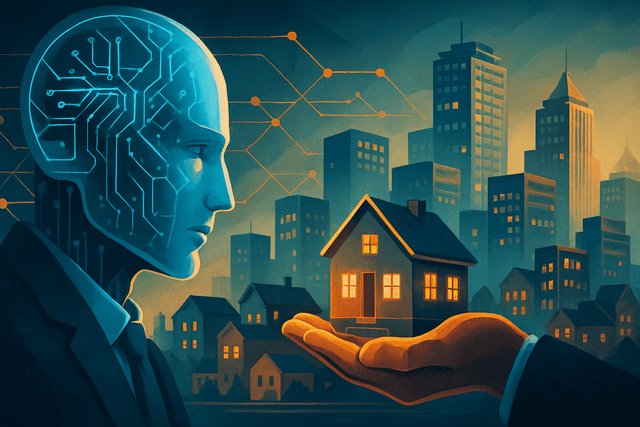The real estate industry, traditionally slow to adopt new technologies, is experiencing a profound transformation driven by artificial intelligence. This technological revolution is reshaping every aspect of the sector, from property valuation and marketing to investment analysis and building management.
According to Morgan Stanley Research, AI innovations could generate up to $34 billion in efficiency gains for the real estate industry by 2030. The global AI in real estate market, valued at approximately $2.9 billion in 2024, is projected to skyrocket to $41.5 billion by 2033, growing at an impressive compound annual growth rate of 30.5%.
AI's impact spans the entire real estate value chain. In property valuation, machine learning algorithms analyze vast datasets to deliver accurate estimates with just a 3% error margin. Virtual staging enhanced by AI can increase property inquiries by up to 200% compared to traditional methods. For property management, AI-driven platforms can boost rental income by up to 9% while reducing maintenance costs by 14%.
The technology is also transforming customer interactions. AI-powered chatbots provide 24/7 support, managing inquiries and scheduling viewings whenever clients need assistance. These virtual assistants use machine learning to track customer behavior and preferences, making more accurate property recommendations and freeing agents to focus on high-value activities.
In the investment realm, AI helps identify emerging market trends with 90% accuracy and predicts property price trends with 95% accuracy, enabling smarter investment decisions. Companies like Zillow use neural networks trained on millions of photos and home values to generate property estimates with a national median error rate of just 2.4%.
Security is another area seeing significant innovation. AI technologies are playing a crucial role in detecting and preventing financial fraud within real estate transactions. By implementing AI-powered transaction monitoring and identity verification systems, professionals can swiftly identify suspicious activities and reduce risks.
However, the AI revolution brings challenges that must be addressed. Data privacy and security concerns are paramount, as real estate transactions involve sensitive personal and financial information. Companies must implement robust data governance frameworks and cybersecurity measures to protect this data.
Algorithmic bias presents another challenge. AI systems can inherit biases from training data, potentially leading to discriminatory outcomes in property valuations or tenant screening. Ensuring fair, transparent, and accountable AI systems is essential for ethical implementation.
The workforce impact is also significant. While AI automates many tasks, from administrative support to property valuation, it threatens to displace human workers, particularly in mid-level operational roles. Organizations adopting AI should take responsibility for supporting workers through retraining and upskilling.
Despite these challenges, the real estate industry's AI adoption continues to accelerate. Over 60% of companies have already started piloting different AI use cases in their real estate functions, according to JLL's 2024 Future of Work Survey. By 2030, the percentage of firms in the real estate sector using AI globally is expected to soar from the current 36% to 90%.
As we look toward the future, real estate professionals who embrace AI while addressing its ethical and practical challenges will gain a significant competitive advantage. The technology isn't just changing how the industry operates—it's fundamentally redefining what's possible in real estate.

